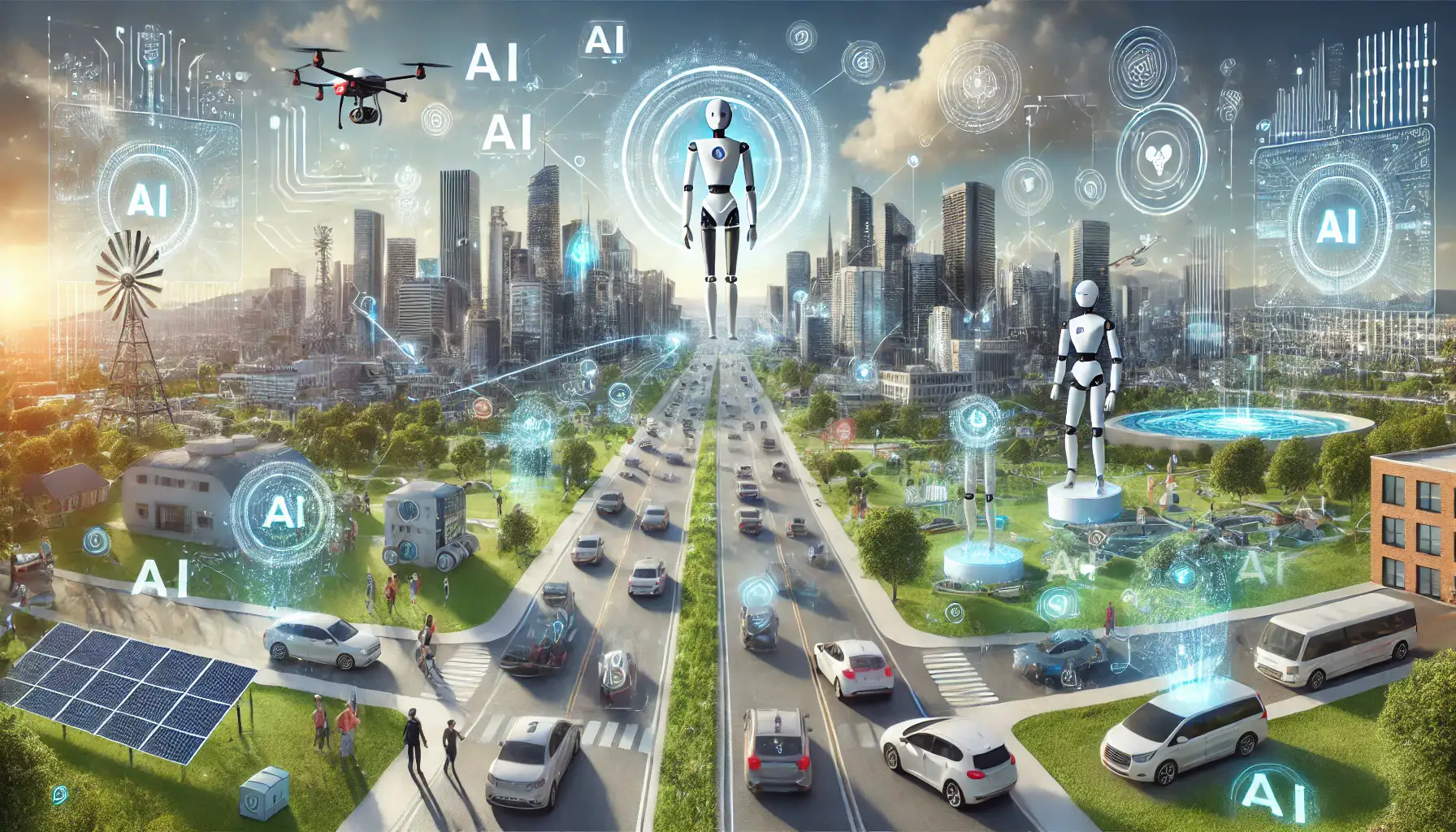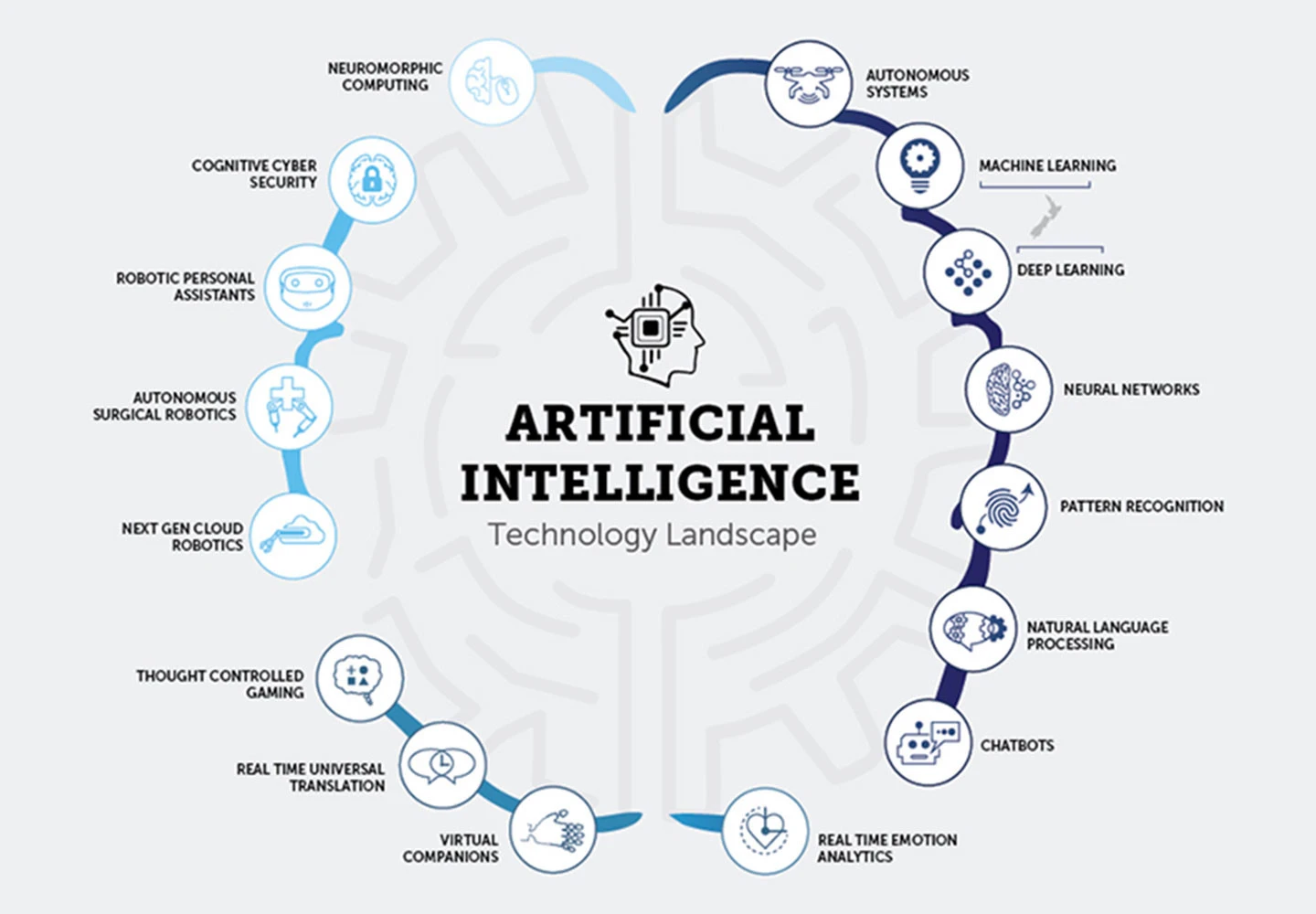
Introduction to Artificial Intelligence
Artificial Intelligence (AI) is a field of computer science focused on the creation of systems capable of performing tasks that typically require human intelligence. These tasks include learning, reasoning, problem-solving, perception, and language understanding. The origins of AI can be traced back to the mid-20th century, with early pioneers like Alan Turing and John McCarthy, who are often credited with laying the groundwork for the field.
One of the first landmark moments in AI history was the development of the Turing Test, proposed by Alan Turing in 1950, as a measure of a machine’s ability to exhibit intelligent behavior equivalent to, or indistinguishable from, that of a human. The 1956 Dartmouth Conference, organized by John McCarthy, marked the formal birth of artificial intelligence as an academic discipline. This event catalyzed significant research and development activities aimed at realizing the potential of AI.
Fundamental concepts underpinning AI include machine learning, deep learning, and neural networks. Machine learning is a subset of AI that involves the development of algorithms that allow computers to learn from and make predictions based on data. Deep learning, a further subset of machine learning, utilizes neural networks with many layers (hence “deep”) to analyze complex patterns in data. Neural networks, inspired by the human brain’s structure, consist of interconnected nodes (neurons) that process and transmit information.
Today, these core principles of AI enable various applications across industries, from healthcare and finance to automotive and entertainment. Understanding these foundational elements of AI is crucial for grasping the broader implications and the transformative effects AI continues to exert on the world around us.
AI in Everyday Life

Artificial Intelligence (AI) has seamlessly woven itself into the fabric of our daily lives, enhancing convenience and efficiency in countless ways. One of the most visible integrations of AI is in personal devices like smartphones and smart home systems. Facial recognition on phones uses AI. It boosts security and user experience. Smart homes use AI in devices like Amazon Alexa and Google Home. They control lighting, entertainment systems, and appliances. This transforms our daily routines.
Another significant impact of AI is evident in the realm of recommendation systems. Streaming platforms like Netflix and Spotify use advanced AI. It analyzes users’ viewing and listening habits. Then, it recommends content that matches their preferences. This not only improves user satisfaction but also keeps users engaged for longer periods.
Virtual personal assistants represent another facet of AI’s integration into our lives. Assistants like Apple’s Siri and Microsoft’s Cortana use advanced NLP. It helps them understand and execute voice commands. These AI-driven assistants can manage calendars, send messages, and even answer complex queries, making everyday tasks more manageable.
AI’s role extends to navigation tools as well, fundamentally changing how we travel from one place to another. Applications like Google Maps and Waze use AI to analyze traffic data in real-time, suggesting optimal routes and providing accurate arrival times. This not only saves time but also enhances travel efficiency.
Overall, AI’s presence in everyday life significantly enhances personalization and automation, making routine activities more efficient and enjoyable. As AI technology evolves, it will enhance daily life. It will become more essential to modern living.
AI in Business and Industry
Artificial Intelligence (AI) is changing the economy by improving business in many fields. In healthcare, AI boosts diagnosis and predictions. It analyzes large data to spot disease patterns, aiding early cancer detection. Tools like IBM’s Watson improve diagnosis by comparing symptoms with medical records. AI also tailors treatments to match a person’s genetics and lifestyle, enhancing outcomes.
In finance, AI transforms trading, spotting fraud, and customer service. It uses algorithms for quick trading, analyzing data to maximize profits. Banks use AI to catch fraud by identifying unusual patterns. AI chatbots improve customer service with instant support.
Retailers also benefit from AI. They manage stock and logistics better and enhance customer interactions. AI predicts demand, adjusting stock to cut waste. Recommendation engines offer personalized shopping, boosting engagement. Amazon leads in this AI-driven shopping experience.
Manufacturing is seeing similar benefits. Factories use AI to monitor machines and predict maintenance. It optimizes production and ensures quality, cutting costs. AI robots perform tasks precisely, increasing safety and productivity.
AI’s role in these sectors shows its power to boost productivity, decision-making, and innovation. As AI evolves, it will drive growth and change in many businesses.
The Ethical and Future Implications of AI
Artificial Intelligence (AI) is changing our lives, but it also raises ethical concerns. A major issue is job loss due to automation. AI can now do tasks that humans used to do. This leads to job cuts in many sectors. It also raises questions about the future of work and economic stability.
Privacy is another big concern. AI needs a lot of data to work well. This data can include sensitive information. Such use poses risks to privacy. Often, it’s unclear how data is collected and used. This lack of transparency can lead to misuse. We need rules to protect privacy while allowing AI to grow.
Bias in AI is another problem. AI learns from data that may reflect social biases. This can lead to unfair outcomes, especially in law, hiring, and lending. Such biases can increase inequality. To combat this, we need careful monitoring, diverse data, and clear accountability.
The conversation around AI rules is growing. Governments and groups are working on frameworks for responsible AI use. Good rules are crucial. They ensure AI aligns with societal values, promoting fairness, accountability, and transparency. Without them, the risks might outweigh the benefits.
Looking ahead, AI technology brings both hope and uncertainty. New AI systems could boost innovation, economic growth, and quality of life. Yet, they also bring challenges. These need careful management. AI will likely be more common in sectors like healthcare, education, transportation, and entertainment. As AI grows, we must manage its benefits and risks. The goal is a future where AI supports global progress and human well-being.